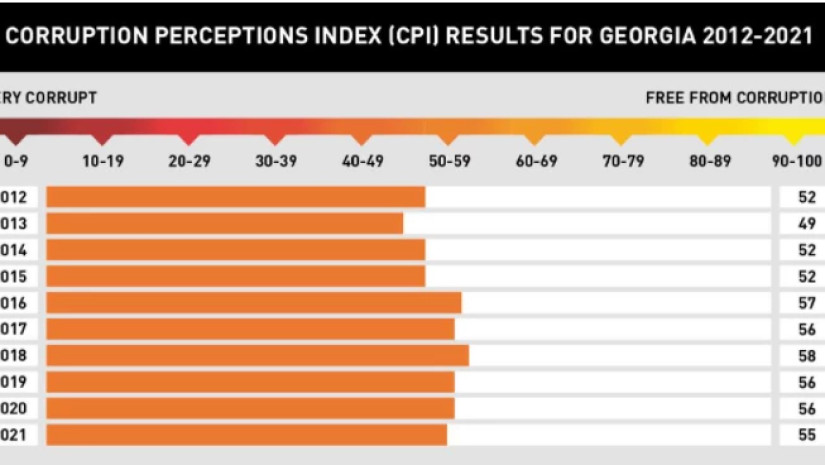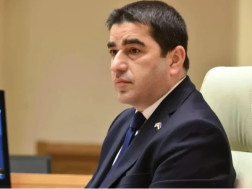According to Transparency International's 2021 Corruption Perceptions Index (CPI), Georgia has a score of 55 points, which is a one point decrease compared to the previous year. Georgia maintains the 45th place among 180 countries included in the ranking and a leading position in the Eastern Europe and Central Asia region.
The authors of the CPI describe the context of corruption in Georgia as follows:
“State capture and concentration of power is also a substantial concern in Georgia, which leads the region with a score of 55. The influence of the ruling party’s founder, Bidzina Ivanishvili, over key institutions meets the definition of state capture, even though Ivanishvili has formally retired from politics. His party, Georgian Dream, has in recent years solidified its grasp on the judiciary and law enforcement bodies, effectively killing the political momentum needed to fight corruption.“
The Corruption Perceptions Index is the most widely used global ranking on corruption. It measures the level of public sector corruption in each country based on the opinions of experts and businesspeople.
Is 55 points a good result?
Given that CPI’s scoring ranges from 0 (highest level of perceived corruption) to 100 (lowest level), 55 points is an average result. For example, the scores of the top 10 performing countries exceed 80.
More importantly, Georgia's score has not improved significantly since 2012, which indicates the stagnation of anti-corruption reforms in the country. Parallel to the tendency of capturing state institutions, the fight against corruption is not a priority for the Georgian government, and in recent years there has been no reform of enough scale or ambition that would improve the anti-corruption environment.
Such an attitude towards corruption is extremely dangerous, since without constant and active resistance the problem of corruption can only be expected to grow.
Georgia's score is largely due to the fact that petty bribery is low in the country. At the same time, the problems and challenges that exist create an ideal environment for corruption to deepen. These challenges are:
* Informal governance - Despite the formal departure of Bidzina Ivanishvili from politics, the most important government positions to date are held by people who had worked for his companies.
* Unhealthy concentration of power in the hands of the ruling party.
* Weakening of the democratic system of checks and balances - political subjugation of the judiciary, the prosecutor's office and independent institutions.
* Weak parliamentary oversight.
* High level corruption - Cases of alleged elite corruption are ignored by investigative bodies and often go uninvestigated and unpunished. There is no independent institution responsible for fighting corruption.
* Stalled anti-corruption reform - Anti-corruption mechanisms are overwhelmingly weak (monitoring of asset declarations) or only exist on paper (conflict of interests, nepotism, whistleblower protection, revolving door).
Recommendations
The Government of Georgia must formally acknowledge that Georgia has a corruption problem, specifically the problem of high level corruption, and begin to take steps such as:
* Eliminate informal influence on public institutions and other manifestations of state capture.
* Remove the corruption investigation function from the State Security Service and establish an independent anti-corruption agency responsible for high-level corruption investigations and effective enforcement of anti-corruption legislation.
* Ensure the independence of the prosecution and undue influence of the ruling party and informal groups over it.
* Carry out an actual reform of the judiciary.
* Strengthen the oversight role of the Parliament.
* Restart the anti-corruption policy.
* Fulfill international obligations and recommendations.
















